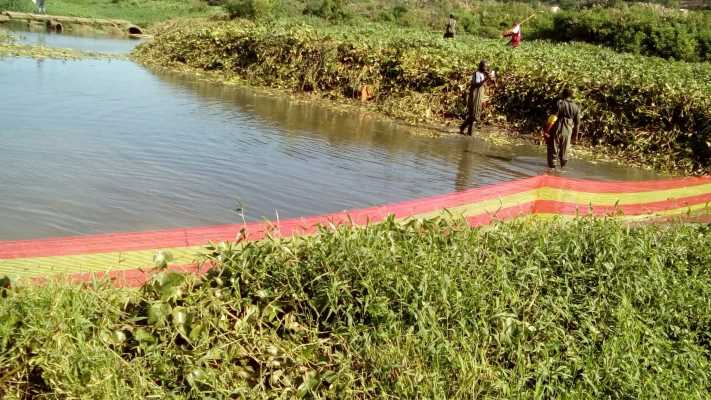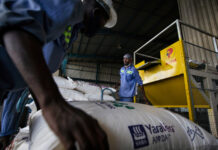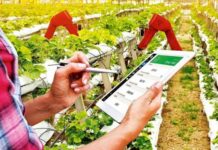Bosch Munitech’s commitment to ensuring a sustainable future in South Africa, encompasses environmental management services that include alien vegetation control.
“South Africa is currently facing a major environmental problem, where invasive alien plants brought into the country, either intentionally or unintentionally, are aggressively spreading and taking precious water and space from our indigenous plants,” explains Zaheer Ismail,Project Manager – Environment, Bosch Munitech. “Many alien plants consume more water than local plants and are depleting our valuable underground water resources. Added to this, dense alien vegetation provides fuel for veld fires, causing damage to the soil structure beneath. Invasive alien plants are also a major threat to biodiversity in catchment areas, potentially disrupting the delicate natural balance in ecosystems. In South Africa there are now approximately 383 invasive plant species that must be urgently controlled to prevent further damage.
“Bosch Munitech works closely with botanists and other environmental specialists, offering various services to assist with alien invasive plant management. Together we develop alien invasive species management plans for specific projects, including environmental management or fire risk settings. These management plans involve the identification of the types of species in the area and recommendations are provided as to which control and management methods are best suited for eradication and management of the alien vegetation.
“Although alien invasive species can be managed in various ways – manual and mechanical (labour and mechanical equipment), biological (beetles and viruses) or with chemicals (herbicides), we prefer to use environmentally-friendly manual, mechanical and biological methods.”
In a current project taking place on a river in Durban, KwaZulu-Natal, Bosch Munitech is successfully controlling the spread of Water Hyacinth, through a combination of manual and biological management methods.
Manual Control
Manual removal of alien vegetation normally involves hand-pulling of invasive plants, like Water Hyacinth, from the water surface, using a pitch fork and treble hooks. Because this method is labour intensive, it is only effective for limited areas of infestation. Another problem with manual control, is that vegetation removal from deep water, like canals, requires additional equipment, such as rafts or boats, as well as various safety precautions.
In the current Durban river project, Bosch Munitech’s recommendation was to clear a pocket of Water Hyacinth from the river directly in front of the area where a specially designed and manufactured net was installed. Pitch forks and treble hooks were used to manually pull the hyacinth to the sides of the river. The plants were then moved to the stock piling location, where they were left to dry before being transported to areas of rehabilitation, to be used as a mulch fertilizer.
Biological Control
Invasive alien plants, like Water Hyacinth, thrive and spread in an exponential manner, partly due to the lack of natural enemies, like browsers or pathogens, that exist in their native land.
Bosch Munitech uses biological biocontrol agents, like insects, mites or other pathogens, to remove an alien plant’s competitive advantage and to reduce its vigour to a level comparable to that of the natural vegetation.
Biocontrol agents attack specific parts of target plants – leaves, stems or roots, or the reproductive parts, like flowers, fruits or seeds.
Bosch Munitech is releasing control agents into the netted area of the river on a monthly basis, until the target population of control agents is achieved.
These biological control agents are received from The South African Sugar Research Institute (SASRI) which has introduced a mass rearing programme for weed biological control agents.









